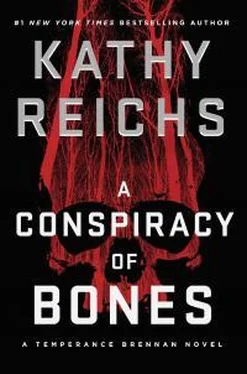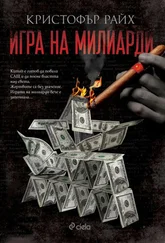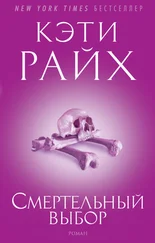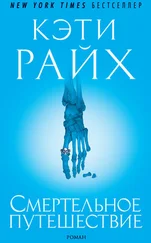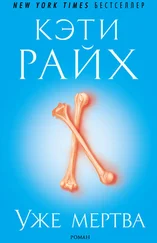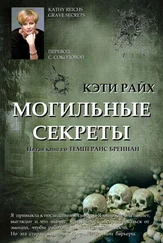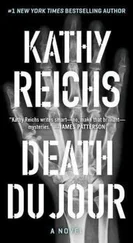The four “persons of interest” stonewalled briefly, eventually turned on one another. But gently, not with the save-your-ass savagery we’d expected. More like playground snitches sharing benign crumbs. Some info came out. Not what we’d hoped.
The child with the trophy was Body’s daughter, AvaLeigh Tayman. AvaLeigh’s mother had left Body years earlier, subsequently remarried. Needless to say, the divorce decree included a monster nondisclosure clause. Thus, their names never surfaced in any of my online searches.
AvaLeigh made occasional visits to the fenced property in Cleveland County. The teeth and pink sneaker were hers. She was probably the child Duncan Keesing saw driven through the gate. The child whose face he’d painted on his barrel.
The house at Lake Wylie was a sales office for Timmer’s inventory of abandoned military silos and bunkers. And a clubhouse for local “homeowners” in his two underground condo complexes. Rah-rah promotional pitches were made there. Social events were held. Movie night. Steaks on the grill. Cocktails cruising the lake.
According to Body, his motive for investing with Timmer was purely financial. According to Timmer, his partner’s reasons were more complex. Fearing he carried the mutation for Huntington’s, Body planned to retreat underground if symptoms appeared.
DeepHaven I was a legitimate success. As Unger had stated in his earlier interview, the twelve-story subterranean complex was complete and fully sold out. Timmer told the same story. Documents confirmed it was true.
And an unexpected zinger. Six years back, during her series of on-air conversations on Body Language , Margot Heavner purchased a small unit, the million and a half price significantly discounted in exchange for inside morgue information, especially on cases involving kids.
To me, an underground getaway seemed out of character for Heavner. I’d have guessed her spare bucks would go for Botox or Jimmy Choos. Struck Slidell that way, too. When he questioned her, Dr. Morgue admitted that money, not survival, was her motivator. She planned to flip the unit for a profit but to date had found no taker.
Guess Heavner’s ethics were even lower than I suspected. Her desire for wealth even stronger.
DeepHaven II was a different situation. The project was hemorrhaging money, and no one was buying. According to both Timmer and Unger, propaganda about missing kids had worked with phase I. Unclear why. People purchase bunkers for a lot of reasons: fear of financial collapse, a race war, a nuke strike, a plague. A survival home is an option that remains empty most of the time. When the big one comes, you can head underground. So why acquire one out of fear of losing your children?
Rightly or wrongly, Body believed the trend was real, so a similar campaign was implemented to boost sales for phase II. Body was using his blogs and podcasts to create panic among his reading and listening public. His defense was repulsive. What the hell? No law against spreading a little alarm.
Each time I listened to a session with the loudmouthed carnival barker, I had to fight back my incredulity. And revulsion. Body wasn’t a defender of the little guy, as he portrayed himself. The blustering bully was in reality a middle-aged cokehead up to his eyeballs in debt. He didn’t live in the little cookie-cutter house on Pine Lily but in a sprawling estate in an area of sprawling estates near Weddington, south of Charlotte. A property titled to another holding company and mortgaged far beyond its value. Not as heinous or dangerous a profile as I’d suspected. Still, the great Oz was a fraud on so many levels my instincts still insisted there was something else there.
Over the years, Felix Vodyanov had been tasked with researching many topics, the Estonia tragedy and missing and murdered children being but two. Nothing sinister. Nothing violent. No kid was ever harmed by anyone involved with Body Language or DeepHaven. On that point, all four held firm.
ITO was the brand name of a tie sold in Japan in the mid-nineties. The company, started by an entrepreneurial high school kid, manufactured a very limited run before going bankrupt. The ties, quite rare, were now worth a fortune. Vodyanov had scored one, liked the name, and used it for one of his many aliases.
The apartment in Ramos’s building was leased primarily for storage of files Body wanted kept off-site and hidden. Felix had lived in the house on Pine Lily Court. Otto Schneller was a Vodyanov cousin. Wanting to safeguard his and his brother’s anonymity, Body had gotten Schneller to agree to put the title in his name in exchange for a trip to the States. Little risk, it seemed. Otto was eighty-seven and living in Minsk.
Again, my gut told me there was more to it. Why such security? Such secrecy? Something reeked like week-old trout.
Everyone agreed that Vodyanov had left the Hyundai at Art’s garage. That he’d written the directions to help locate the car, probably as a reminder to himself. He’d jotted the message in code, as was his habit. Perhaps he’d visited the area several times while planning his final goodbye.
One of the numbers indented into the notebook was for a burner briefly owned by Holly Kimrey. None of the four knew why Vodyanov had listed my mobile on the same page. Or the reference to Jahaan Cole. So they said.
That unconnected dot came from Yuriev. And an explanation of his reaction upon hearing Jahaan Cole’s name during our conversation in his car. When pressed, the good doctor admitted that Vodyanov had once spoken of an interview given by a forensic anthropologist named Temperance Brennan on the fourth anniversary of Cole’s disappearance. Hence, Vodyanov’s choice of me as the person to contact.
Yuriev’s link to Body and Vodyanov was through a chess club favored by Russian expats. The doctor had nothing to do with Vodyanov’s suicide, had tried to argue his patient back from the edge. In the end, he gave up, knowing Felix’s future held nothing but misery. He’d supplied no drugs. Though Kimrey denied it, Body and Unger both implied the fentanyl came from him.
Why taphophobia? Yuriev and Vodyanov found the paradox amusing.
Kimrey was doing a drug run to the bunker the day I found the folder. He was sure Vodyanov had chucked it in the dumpster, speculated Felix was cleaning house before offing himself. He’d seen Vodyanov burning the contents of other boxes, probably those he’d kept at Ramos’s building. Not knowing who I was or what I intended to do with the file or the teeth pouch, Kimrey nicked both. Plus, he was freaked that I’d breached security due to his carelessness, didn’t want his boss to learn he’d left the gate unlocked.
Based on details grudgingly pried loose from all four interviewees, a picture of Vodyanov slowly emerged. A man devoted to Nick Body yet always in his younger brother’s shadow. A man crafting the appearance of a lifestyle he couldn’t afford—secondhand clothes, imitation art. A man facing his own physical and mental decline, stumbling, falling, writing notes to himself to keep his thoughts organized. To access passcodes he couldn’t remember. A man tortured by some of his actions, seeking to make amends before ending his life.
But no one was involved in harming kids. No way. Never. Inconceivable. Either the four were telling the truth, or their performances were superb.
By Monday afternoon, Body, Unger, and Timmer had all lawyered up. Simultaneous with Slidell’s interrogation, slowed now by endless interruptions from counsel, searches of the Pine Lily house and Body’s home in Weddington were carried out, and another was begun at the bunker. All day, Slidell’s mobile buzzed. Each time, he grabbed it and stepped out of the room. Each time, the news was discouraging. Nothing was turning up to tie any of the men to any missing or murdered child.
Читать дальше
